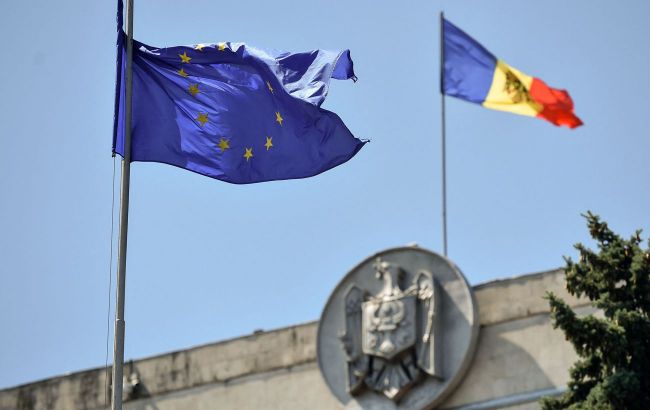Moldova fears humanitarian catastrophe as Russian gas transit ends in 2025
 Illustrative photo (Getty Images)
Illustrative photo (Getty Images)
After the cessation of Russian gas transit through Ukraine in 2025, Moldova may face risks of electricity shortages. The Moscow-controlled Transnistria region could find itself on the brink of a humanitarian crisis, according to RBC-Ukraine's article titled "Ukraine to halt gas transit from Russia: Is Europe ready, and what are risks for Moldova."
Gas consumption in Moldova is relatively low — up to 3 billion cubic meters annually. One-third is used on the right bank of the Dniester, while the rest is for the left bank. The cessation of gas transit through Ukraine will primarily affect the left bank — Transnistria—where the Moldovan State Power Plant (MDRES) supplies electricity to the entire country.
According to Moldova’s Ministry of Energy, the right bank of Moldova stopped consuming Gazprom’s natural gas in November 2022 after Russia unilaterally reduced supplies to 5.7 million cubic meters per day, in violation of the contract between Gazprom and Moldovagaz. At the time, the government decided to allocate the entire gas supply to the Transnistrian region, including the power plant in Dniester.
For the right bank, gas supplies have been diversified through purchases from various traders and transportation via different routes.
"We tested and confirmed the commercial viability of importing liquefied natural gas from the US, becoming one of the buyers of the first cargo at the Alexandroupolis LNG terminal in Greece, and transported it through the "Vertical Corridor" (Ukraine joined the "Vertical Corridor" in January 2024 - ed.) to underground gas storage facilities in Ukraine. We are currently advocating for the creation of a comprehensive product for the entire "Vertical Corridor," which will facilitate the transportation of gas to Ukrainian storage facilities, creating business opportunities for our system operators and strengthening the energy security of the region," stated Moldova's Ministry of Energy.
Moldova's Ministry of Energy noted that maintaining the status quo and continuing transit would ensure social stability in the Transnistrian region. However, a complete supply halt could bring the region to the "brink of a humanitarian crisis."
"Given the presence of Russian armed forces, weapons, and ammunition depots in the region, as well as the fact that we purchase a significant part of our electricity from Moldova's State District Power Plant, we do not want to destabilize the region and will not prevent Gazprom from continuing to supply gas to the Transnistrian region," the ministry explained.
What worries Chisinau
Moldovan Energy Minister Victor Parlicov recently held talks with Gazprom executives. However, no specific agreements on gas supplies to Transnistria after 2024 were reported following the discussions.
Even if alternative gas sources are found — relatively easy given the modest volume required — it remains unclear who will pay for it.
Gas procurement costs would rise in this case, but Chisinau lacks extra funds. Until now, gas reaching Transnistria via Ukraine has been virtually free. "The volumes consumed on the left bank of the Dniester have not been paid to Gazprom for many years, and tariffs for consumers in the region are significantly lower than the real cost of gas. The population there is accustomed to very low tariffs, which are nowhere near enough to cover the real cost of gas," the ministry stated.
Moldova fears that if Transnistria, controlled by Russia, stops receiving Russian gas, problems may arise in electricity generation and supply to the right bank of the Dniester. A source familiar with the situation said Chisinau's concerns are serious.
"The issue is that Moldova's State District Power Plant is located on territory not controlled by Chisinau. And if there is no gas through Ukraine, there will be no electricity for the right bank. This could become a principled position for Russia," the source noted.
If Moldova loses Moldova's State District Power Plant’s generation capacity, electricity supplies from Romania will not cover its needs.
Given these concerns, sources suggest that Moldova may soon seek help from the EU or the United States.
It is worth noting that Russian gas transit through Ukraine will end on January 1, 2025. All Eastern and Central European countries that previously relied on this gas are already prepared for the cessation.

